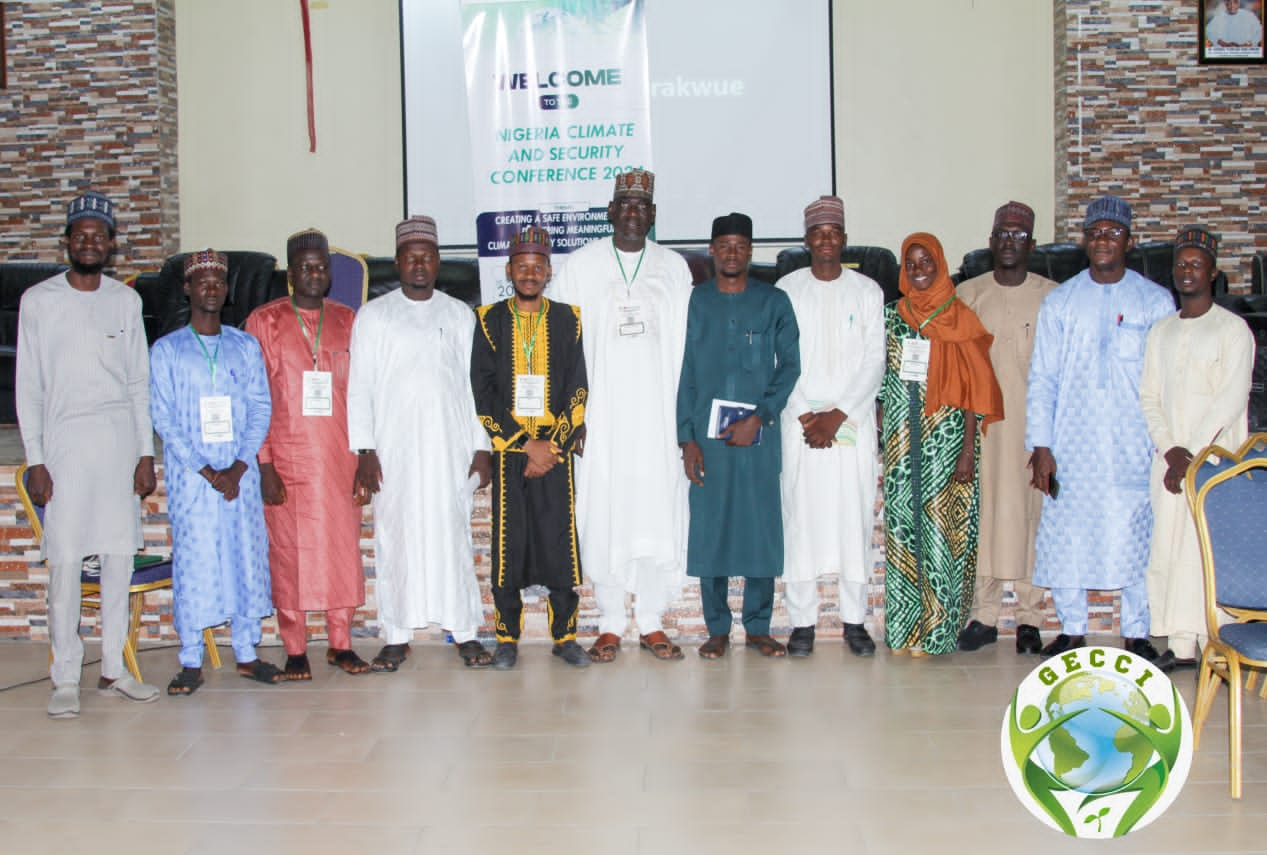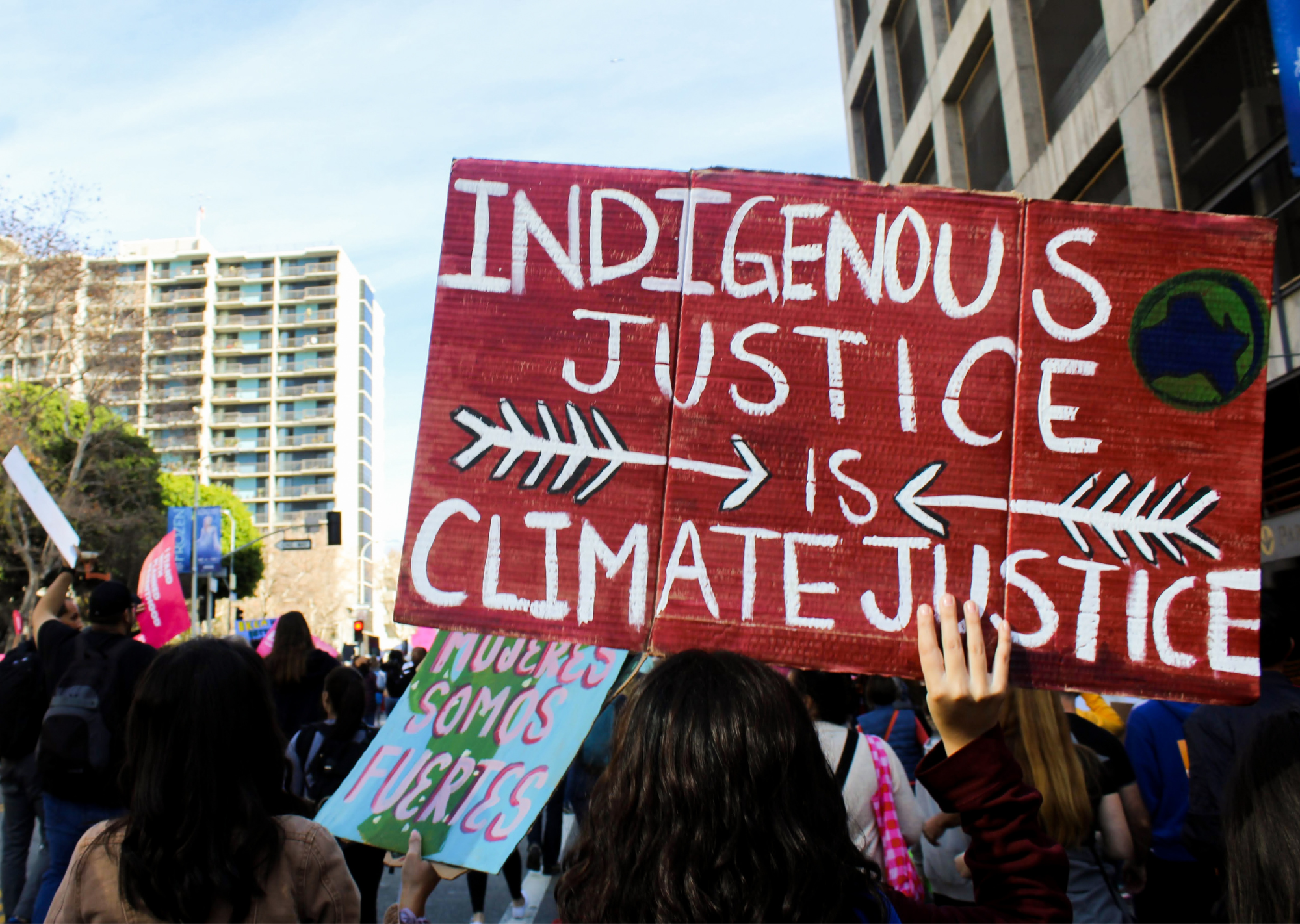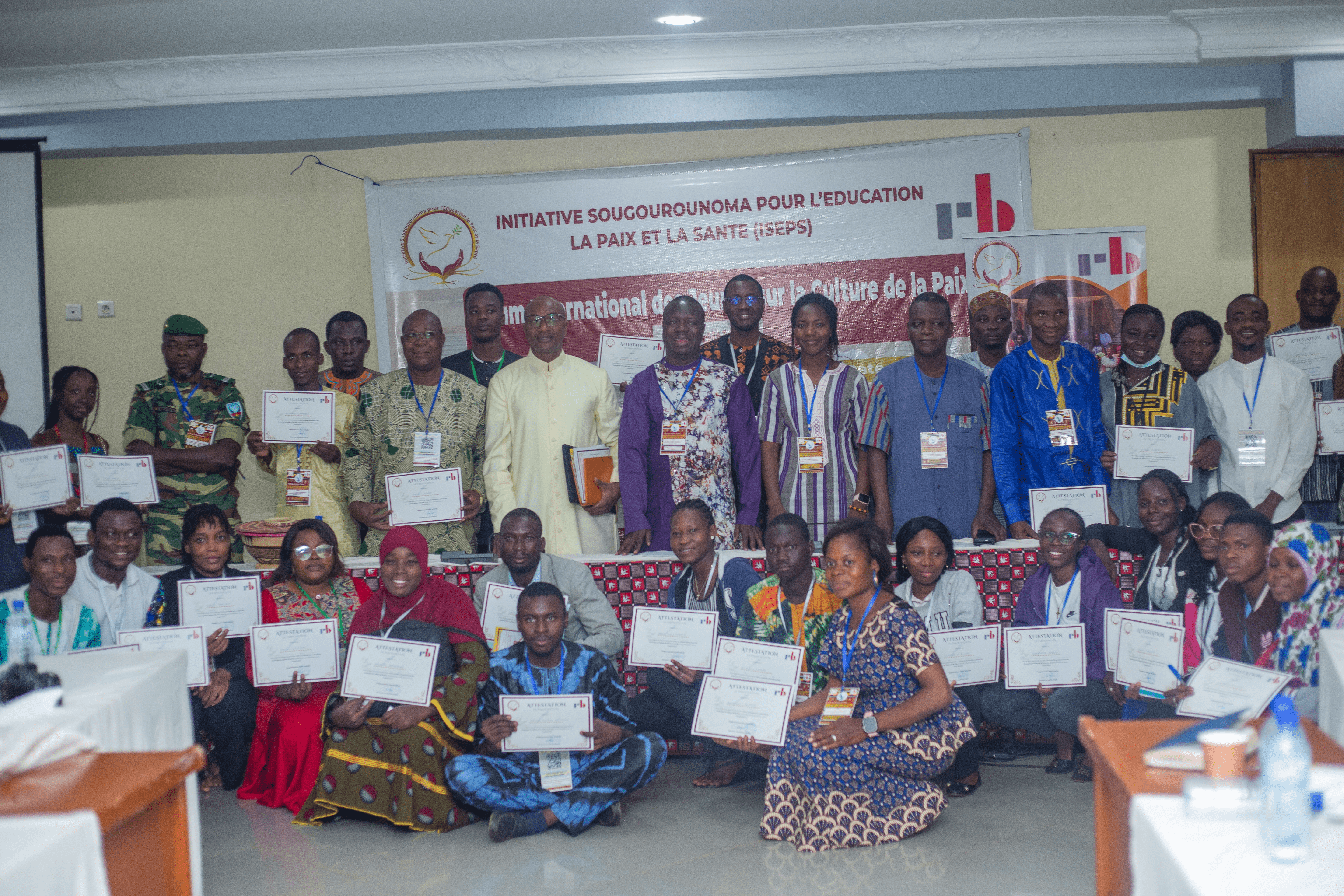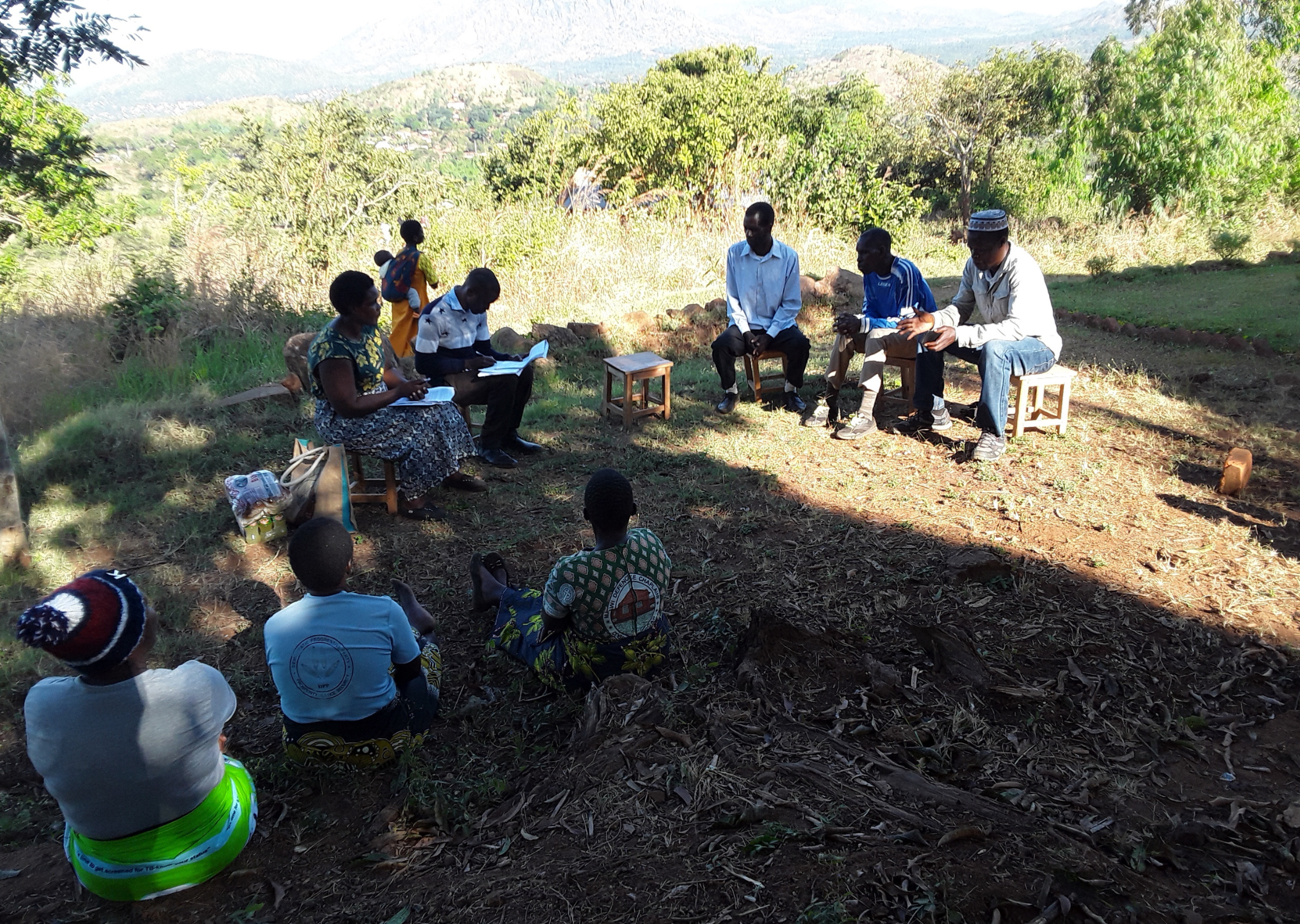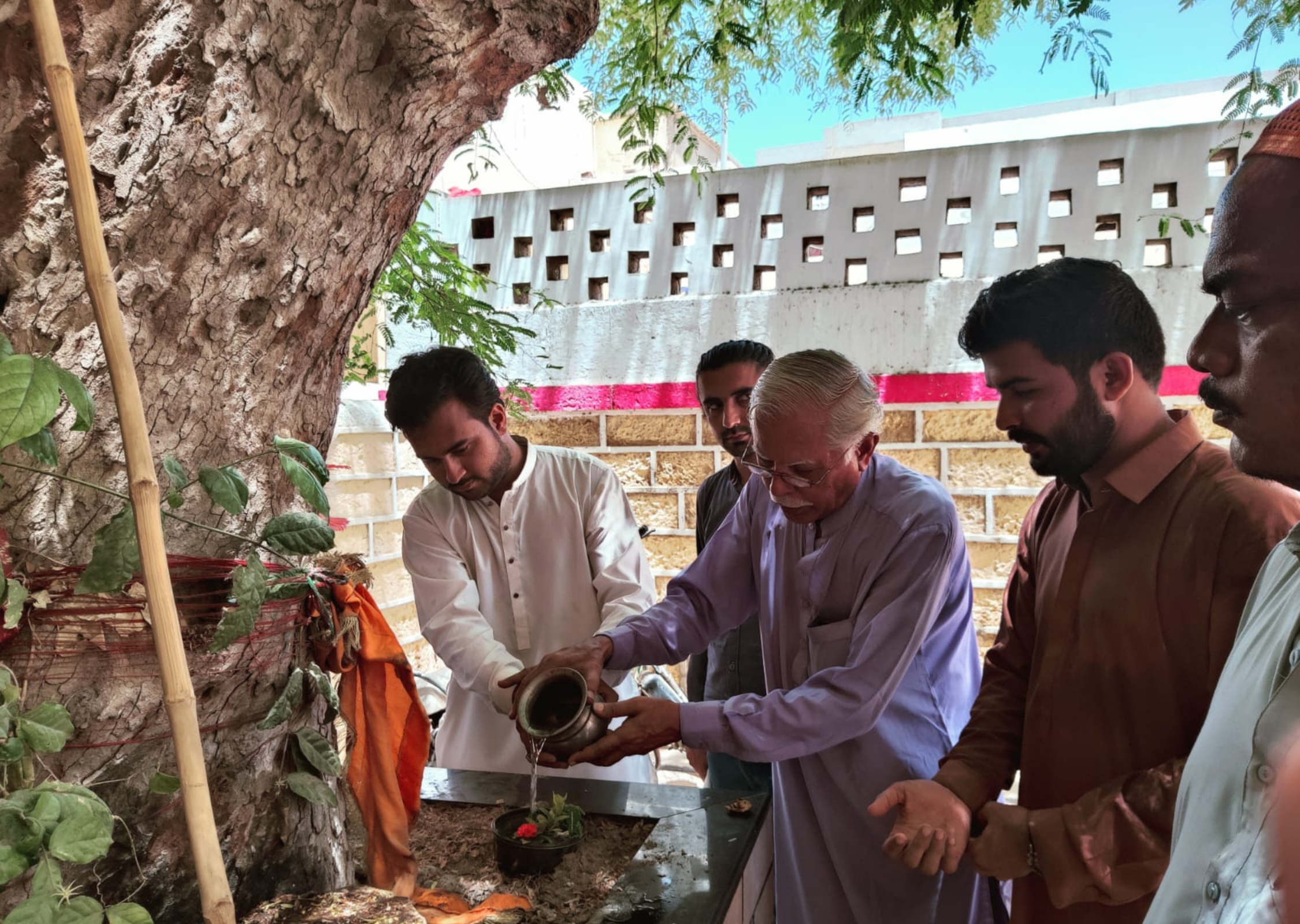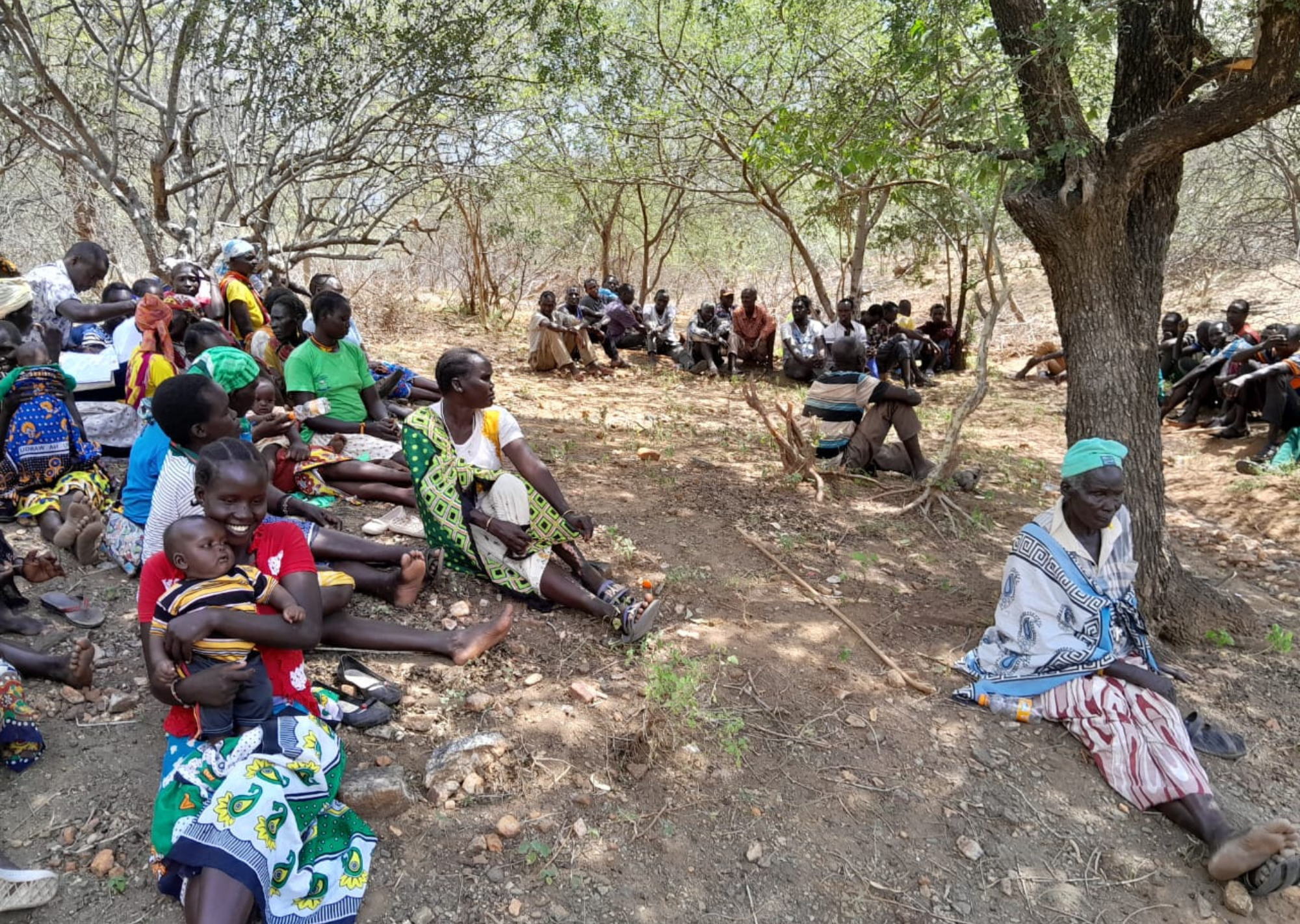Sacred Earth:
Faith, Climate, and the Power of Listening
A multimedia project elevating the voices of faith communities as they address climate-driven conflicts in their communities.
Building on the vital work of religious leaders, faith-based organizations, and communities committed to environmental protection, conflict resolution, and climate aciton, Sacred Earth invites viewers on a transformative journey to witness how faith communities are rising to meet the challenges of an evolving global landscape.
Through a rich selection of videos, podcasts, and testimonies, we spotlight the invaluable work of our members, supporters and partners, showcasing their critical contributions in addressing the urgent climate crisis through the nexus of faith and climate.
Faith Communities as Catalysts for Social Transition and Climate Action
Climate change is the ultimate threat multiplier and has increased the insecurity of vulnerable communities around the world. In the last 60 years, more than 40% of the world’s civil wars have been linked to control over natural resources such as land, oil, and water. With the current track of projections, this situation is only poised to get worse, with new and unprecedented impacts on the climate ecosystems, which we depend on to survive. Vulnerable and marginalized populations in society are at the greatest risk of climate crises.
Faith actors, institutions and communities are critical partners in addressing climate emergencies. The contribution by faith leaders and actors are instrumental towards social transitioning to climate neutrality and developing innovative solutions to combat the climate crisis.
Through the Lens: Videos on Climate, Conscience, and Responsibility
Showcasing faith-based peacemakers, these videos demonstrate the impact these actors have in addressing resource-based conflicts, promoting environmental peacebuilding, and protecting the environment.
Ancestral Wisdom, Global Peace: Indigenous Spiritual Responses to Climate and Conflict
Indigenous Peoples have a wealth of wisdom and knowledge when it comes to environmental protection. How, then, can global communities and Indigenous People’s Organizations partner and collaborate together to address climate emergencies?
In this episode of the Sacred Earth video series, we had the opportunity to talk with Indigenous Peoples and grassroots actors from Colombia, Guatemala, Uganda, India, and Nepal. Together, we explored how to foster dialogue between institutions and Indigenous Peoples and how reconnecting with ancestral knowledge can help us reimagine the relationship between land and humanity.
Interviewees:
Tongpang Longchar, Volunteer at Initiatives for Change India (India)
Teresa Gonón, Theologian and researcher (Guatemala)
Anish Shrestha, Executive Director of Youth for Environment and Development Foundation in Nepal (Nepal)
Gertrude Kenyangi, Executive Director of Women in Agriculture and Environment (Uganda)
Jaime Luis Arias Ramirez, Authority, governor of the Cabildo Kankuamo Peoples’ Council and Legal Representative of the Indigenous Kankuamo Organization (Colombia)
Niver José Arias, Coordinator of the Commission of the Territory and the Environment (Colombia)
Katy Liliana Dangond Diaz, Kankuamo Leader and Legal Consultant for the Indigenous Kankuamo Organization (Colombia)
Faith in Action: Preventing Violence at the Nexus of Climate, Peace and Security
As climate change continues to become a threat that increases the insecurity of vulnerable communities around the world, it is critical that religious actors, institutions, and communities, due to their multifaceted perspectives and experiences, partner together to address current and emerging climate emergencies.
In this episode of the Sacred Earth video series, we talked with faith actors from South Africa, Bangladesh, India, and Malawi, to hear their stories on how they are addressing climate-related emergencies that aim to prevent the risk of future conflicts.
Interviewees:
Merylene Chitharai, Professional Architectural Technologist (South Africa)
Sumaiya Binte Selim, Coordinator for Gender and Youth Program at ICCCAD (Bangladesh)
Nitish Barole, Founder of Youth for Resilience (India)
Dalitso Muronya, Country Director for One World, One Family Foundation (Malawi)
Rooted in Peace: Interfaith Responses to Climate Induced Violence
Today, it is estimated that 85% of people around the globe identify with a religion or spiritual tradition, and faith continues to be one of the strongest motivators that human beings have. Therefore, engaging with religious leaders and communities when promoting response efforts from climate-related conflicts is key to impactful change.
This episode of the Sacred Earth video series highlights faith actors from Mozambique, Nigeria, Cameroon, and India to address best practices when implementing response strategies.
Interviewees:
Reverend Zelda Cossa, Pastor at the Evangelical Lutheran Church in Mozambique (Mozambique)
Ijeoma Stephanie Ladele, Executive Director of the Environmental Conflict Mediation and Women Development Initiative (Nigeria)
Yaqeen Sikander, Psychotherapist, Wellness Consultant, and Empowerment Coach (India)
Reverend Agostao Zitha, National Program Director of the Christian Council of Mozambique (Mozambique)
Ibrahim Djagra, President of the Association of Dynamic Youth for the Emergence of Cameroon (Cameroon)
Peace with the Earth and Each Other: Faith Leadership in Post Conflict Climate Adaptation
How does climate change continue to affect communities in the aftermath of climate-related conflict?
Inspired by their faith traditions, in this episode of the Sacred Earth video series, faith actors from Uganda, Colombia, Bosnia and Herzegovina, and Thailand share how they are addressing post-climate conflict settings, to mediate tensions and empower community resilience.
Interviewees:
Dr. Reverend Simon Masiga, Church Priest and Associate Lecturer in Religion and Peace Studies at Makerere University (Uganda)
Ricardo Esquivia, Founder and Director of Sembrandopaz (Colombia)
Emina Frljak, Project Coordinator for Youth for Peace (Bosnia and Herzegovina)
Venerable Napan, Assistant Abbot of the Golden Mount Temple in Bangkok and Director of the Institute of Buddhist Management for Happiness and Peace (IBHAP) (Thailand)
Divine Responsibility: Faith Communities Addressing the Climate Security Crisis
Environmental disasters and climate change affects all of society, therefore, it is ever more critical that when responding to climate-related conflicts, we must be approaching solutions holistically and inclusively. Due to their community influence, this includes bringing faith leaders to the table of policy and decision-making.
In this episode of the Sacred Earth video series, faith and institutional actors from Kenya, Ireland, the United Kingdom, and Israel will share best practices in fostering collaboration with faith communities on an institutional level.
Interviewees:
Azmaira Alibhai, Faith and Ecosystems Coordinator at UNEP, Faith for Earth Coalition (Kenya)
Jean Duff, Founding Partner of The Partnership for Faith and Development (Ireland)
Joseph Hammond, Africa Director for Faith for Our Planet (United Kingdom)
Laura Cook, Special Projects and Faith Communities Lead at Project Dandelion (United Kingdom)
Yonatan Neril, Founder and Director of The Interfaith Center for Sustainable Development (Israel)
Sacred Earth Podcasts:
Conversations on Faith and Climate
Sacred Earth, Secure Future: Youth Leading on Cliamte, Peace and Security
Hosted by Katrina Leclerc and Blanche Monabeka at Canadian Coalition for Youth, Peace and Security (CCYPS), this series highlights the transformative roles young people play in addressing climate justice and peace. From youth-led initiatives to interfaith efforts, these episodes amplify the voices of youth, particularly women and marginalzied groups, advocating for meaningful change.
EP 1: Youth-Led Action for Gender and Climate Justice: DASTAK Foundation's Impact in Pakistan
How are youth-led initiatives empowering young women at the intersection of environmental justice and gender? Aligned with SDG5 (Gender Equality) and SDG17 (Partnerships for the Goals), this episode delves into how these organizations are creating meaningful change and building impactful partnerships for a better, more inclusive future. Click here if unable to load episode.
Guest speaker:
Hira Ahmad, Founder and Executive Director, DASTAK Foundation in Pakistan
EP 2: Spotlighting Research to Amplify Youth Voices in the Climate, Peace and Security Space
This episode explores the current research conducted by young people on the impact of climate change, environmental degradation and conflicts on marginalized youth through their individual case studies. Young people reflect on other intersections of climate and how they shape their work on the ground, including religion, tradition, and beliefs. Click here if unable to load episode.
Guest speakers:
Arizza Ann Nocum, Co-founder of KRIS for Peace (Philippines)
Ndugwa Hassan, Executive Director of Uganda Muslim Youth Development Forum (Uganda)
ÉP 2: [Français] Mettre en lumière la recherche pour amplifier les voix des jeunes dans les domaines du climat, de la paix et de la sécurité
Cet épisode explore les recherches actuelles menées par des jeunes sur l’impact du changement climatique, de la dégradation de l’environnement et des conflits sur les jeunes marginalisés, à travers des études de cas individuelles. Les jeunes réfléchissent à d’autres interactions entre le climat et la manière dont elles façonnent leur travail sur le terrain, notamment la religion, les traditions et les croyances. Cliquez ici si vous ne parvenez pas à charger l’épisode.
Conférencier invité:
Jules Kima, Secrétaire général de SUUDU ANDAL (Burkina Faso)
EP 3: Investing in Gen Z: Advancing Climate, Peace and Security in the Digital Era
What are the innovative approaches to advancing climate, peace and security through reaching young people online? Tune in to unpact how engaging young people online can activate further localized climate action. Click here if unable to load episode.
Guest speaker:
Greshma Praju, Founder of Ecopeace Teen Cafe (India)
EP 4: Advancing Youth Interfaith Efforts in Climate-Induced Conflicts
Learn how youth of faith are spearheading interfaith efforts in the climate, peace and security space in their communities. From prevention, response and post-conflict activities, these young leaders showcase how faith-based approaches are helping to resolve climate-induced conflicts. Click here if unable to load episode.
Guest speakers:
Hayatu Nura Ashafa, Co-Director of Interfaith Mediation Center (Nigeria)
Sameer Khan, Founder of Collective Pakistan (Pakistan)
Nejat Mehdi, Women and Youth Focal Person, Ethiopia Interfaith Development, Dialogue in Action (Ethiopia)
Sacred Earth: Stories of Harmony and Resilience
Hosted by Janie Dumbleton at Tanenbaum, this series explores the powerful instersection of peacebuilding and environmental action, and highlighting how local leadership and ecological action are driving sustainable peace in Nigeria and El Salvador.
EP 1: Investing in the Future: The Vision Behind the Peace Trees Initiative
Nigerian peace activists and Tanenbaum Peacemakers in Action Pastor James Wuye and Imam Muhammad Ashafa discuss their Peace Trees initiative. Pastor James and Imam Ashafa work with local schools and community-focused organizations to re-green Nigeria. They relay their passion for planting trees by explaining how they arrived at the idea, how the deforestation in Nigeria contributes to violent conflict, and how involving local communities in ecological peacebuilding of this kind will build a more peaceful climate. Click here if unable to load episode.
Guest speakers:
Pastor James Wuye and Muhammad Ashafa, Co-founders of Kaduna Interfaith Mediation Centre and Peacemakers in Action
EP 2: Peacebuilding, Climate Justice, and Environmental Conservation in El Salvador
Tanenbaum Peacemaker in Action Yeny Gloribel Nolasco reflects on Peacebuilding, Climate Justice, and Environmental Conservation in her home country of El Salvador. Click here if unable to load episode.
Guest speaker:
Yeny Gloribel Nolasco, Peacemaker in Action
Sacred Earth: New Climate Narratives
Hosted by Kristian Noll at the London School of Economics Religion and Global Society, this series delves into how emerging religious discourses shape global and local climate responses, examining issues such as resilience, peace, and security.
EP 1: New Research on Climate Discourses
This episode explores the research conducted by London School of Economics Religion and Global Society into emerging religious discourses on the climate crisis and its impact on peace and security. Scholars introduce the empirical research guiding the rest of the ‘New Climate Narratives’ series. Click here if unable to load episode.
Guest speakers:
Professor Mike Hulme, Professor of Human Geography at the University of Cambridge
Revd Canon Professor James Walters, Director of LSE Faith Center and LSE RGS
Dr. Carmody Grey, Assistant Professor of Theology at Durham University
EP 2: New Narratives of Climate Resilience
The second episode invites international climate experts about how individuals around the world are making sense of the climate crisis, focusing on the role of faith and religious narratives and discovering new ways faith-rooted narratives can influence global policymaking. Click here if unable to load episode.
Guest speakers:
Iyad Abumoghli, Founder and Director of UNEP’s Faith for Earth Coalition
Dicky Sofjan, Vice President of Globethics
Martha Jarvis, Permanent Anglican Representative to the UN
Maja Groff, Convenor of the Climate Governance Commission
EP 3: New Locales and Impacts of Climate Action Within Peace and Security Efforts
How can local responses to the climate emergency, and the role of faith communities respond to environmental challenges? The third episode of the ‘New Climate Narratives’ Sacred Earth series continues that conversation. Click here if unable to load episode.
Guest speakers:
Iyad Abumoghli, Founder and Director of UNEP’s Faith for Earth Coalition
Dicky Sofjan, Vice President of Globethics
Maja Groff, Convenor of the Climate Governance Commission
Nushrat Chowdhury, Climate Justice Policy Advisor at Christian Aid Bangladesh
EP 4: Promoting Inclusion and New Voices in the Climate Movement
In the final episode, two leaders in the climate field will reflect on their personal experiences of climate change, their journeys as leaders in the climate policy space, and the importance of including youth, women, and marginalized communities in global climate discussions. Click here if unable to load episode.
Guest speakers:
Skw’akw’as (Sunshine) Dunstan-Moore, Indigenous and human rights advocate from Canada
Shomy Chowdhury, Co-founder of Awareness 360 and WASH activist from Bangladesh
Perspectives from our
Members and Supporters
Members and supporters of the Peacemakers Network are conducting incredible work at the intersection of climate and conflict within their communities. Read what they have to say about their efforts:
Nigeria Hosts Inaugural Climate and Security Conference, Emphasizing Youth Leadership. Source: African Climate Reporter.
“Faith and Indigenous traditions embody profound wisdom in environmental stewardship, highlighting the importance of living in harmony with nature and embracing sustainable practices.”
–Abdulhamid Tahir Hamid, CEO of Global Environment & Climate Conservation Initiative
“Dear World Leaders and Policymakers, now, more than ever, is the time to become more ambitious about climate change and to work towards the Paris Agreement of 1.5 degree Celsius. Many Indigenous homes has been destroyed either by wildfires, deforestation, health hazards and natural causes, coming together in one faith under God and working towards the climate ambitions through adaptation and mitigation efforts would help to sustain a good and healthy lifestyle for Indigenous young people and upholds their traditions for a many years to come through effective climate resilience plans towards their physical and mental wellbeing.”
–Afolashade Oluwo, Program Coordinator of Plant for the Planet Foundation
International Youth Forum on Culture of Peace on the theme “Youth, Religion, Mediation and Climate Change in the Sahel and West Africa” held in December 2024 in Ouagadougou, Burkina Faso, gathering 100 youth from the region. Submission by Henri Kabore.
“World leaders and policymakers must support the engagement of young people in climate action and environmental peacemaking, especially traditional and religious youth whose faith and beliefs call them to be stewards and caretakers of Creation. There can be no lasting peace without harmony between the Creator, Humans and Nature.”
–Henri Kabore, Executive Director of Initiative Sougourounoma pour l’Education, la Paix et la Santé (ISEPS)
Focus group discussion with faith leaders on climate change in Zomba, Malawi, T/A Mlumbe. Submission by Dalitso Muronya.
“Faith and Indigenous communities play a critical role in promoting inclusivity in land management, ensuring that climate justice is rooted in wisdom, equity, and sustainability.”
–Dalitso Muronya, Country Director, One World – One Family Malawi
“In Pakistan, where climate disasters like floods and droughts displace families and deepen conflicts, faith and indigenous wisdom offer a powerful path to climate justice. Religious leaders and local communities, trusted voices for generations, can inspire action by linking Islamic principles with environmental care. Imagine imams in Sindh preaching water conservation or elders in Khyber Pakhtunkhwa sharing ancestral farming techniques. These aren’t just lessons they’re practical, faith-rooted solutions to real problems. By empowering these voices, we can unite communities to protect the environment, ensuring sustainable and inclusive resilience for all Pakistanis. Together, we can turn faith and tradition into tools for survival and hope.”
-Sameer Ali Khan, Founder of Collective Pakistan
Captured during the ‘Connecting Religious Leaders for Climate Action’ event in Pakistan, held at a Mandir in Thatta, Sindh. The event focused on creating a network of religious leaders to counter the religious myths surrounding the reality of climate change. During the gathering, these religious leaders pledged to plant 10 trees at every religious event and committed to promoting the gifting of plants as a way to demonstrate care for nature. Submission by Sameer Ali Khan.
Community level Training on climate adaptation project prioritization in West Pokot County, Kenya. Submission by Andrew Wachelon.
“Indigenous communities are untapped resource with immense knowledge and practical solutions responding to climate induced conflicts from history. I look forward to a future where faith-based and indigenous platforms knowledge are tapped into more in environmental climate action.”
–Andrew Wachelon, Executive Director of Dreams Alive Africa

